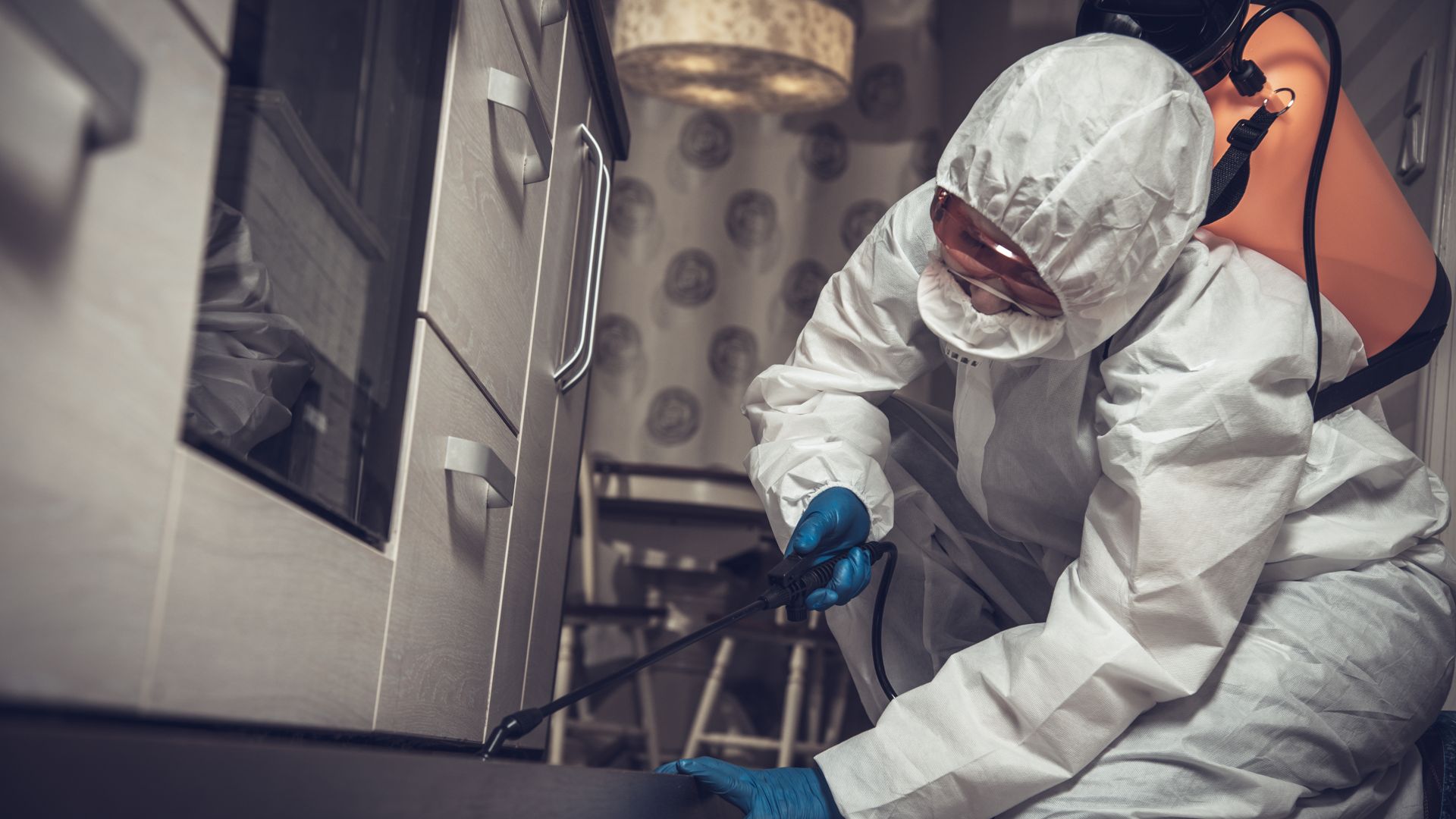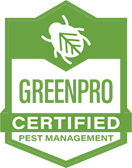
Roseville's Guide To Effective Rodent Control Methods
Rodents are intelligent, resourceful, and highly skilled animals. There is much about them that is amazing. What isn't amazing is how easily they enter our homes in mysterious ways. Today, we aim to remove some of the mystery. If you are detecting rodent activity on your property or inside your home, you're sure to find some helpful tips and information here. We'll look at common rodent pests in Roseville, the problems they create that are worth addressing, how to deal with tree and ground rodents, and what works to prevent rodent infestations after the removal of rodents. If you need advice or you would like to request service, jump over to our contact page and drop us a line for service. Neighborly Pest Management provides smart and effective pest control in Roseville. With that said, buckle in! We're going to cover a lot of ground today.
About The Rats And Mice In Roseville
.2404180850550.jpg)
The three common rodents in Roseville are rats, mice, and squirrels. We are going to focus on rats and mice. While squirrels can enter your home and become indoor pests, they are far more likely to remain lawn rodents. Our only recommendation for squirrels is not to feed them, so they don't get the wrong idea. Rats and mice get the wrong idea whether you feed them or not.
House Mice: There is a reason they have the word house in their name. These little mice love living inside human dwellings. Once inside, you're not going to have any success convincing them to leave.
Roof Rats: These are considered house rats. When they get into your home, they're happy to stay permanently. They live in attics and hide in rafters. These thin, sleek rodents are entirely black.
Norway Rats: These are burrowing rats. They commonly enter Roseville yards and create ground burrows under piles of junk or underneath sheds. While Norway rats can enter your home and stay permanently, they are far more likely to live in your yard and go in and out of your home, which creates its own set of issues. These big, plump rodents are typically brown.
When rodents come into your yard, explore your exterior, and find their way indoors, you won't likely see them doing it. They move about in dark locations and prefer nighttime activity. So, knowing the warning signs of a rodent infestation is essential.
- Look for rodent droppings: Rodent droppings are black, shiny, and moist when fresh. They turn gray and become brittle as they age. Mouse droppings are slightly smaller than grains of rice. Rat droppings are twice that size and slightly smaller than squirrel droppings.
- Look for grease marks: When rats or mice run along surfaces, they leave a grease mark. You may find these marks on your foundation walls, wood timbers, or pipes. Use a flashlight to check dark and secluded spaces in and around your Roseville home.
- Check for footprints or shed hairs: When rodents get into storage areas that are dusty, you may see their footprints in the dust. When they get into food cabinets or crawl on food shelves, you may see footprints or hairs in food particles.
- Inspect your home for holes: Rats are large rodents that create holes about the size of a quarter. Mice are small rodents that create holes about the size of a nickel. Check around your home for entry points and inspect interior spaces for holes in stored furniture, stored boxes, and stored food. In your kitchen, get down low and look for holes underneath the overhangs of cabinets, or slide your oven out and check the wall behind. Rodent holes can appear in many places. When you find one, seal it and check back later. If new holes form, it is a sign of a current infestation.
If you find evidence, the next step is to consider the risks of having mice or rats inside your Roseville home. Let's look at how these small animals can impact your health and damage your property.


Ensuring your home and business are pest-free, explore our different service areas to see if we're local to you! Give us a call to get started!
The Most Effective Rodent Control For Your Home
Effective rodent control services in Roseville provides all of the options needed for removal, sanitation, and exclusion. Not all companies offer the same range of services. It is essential to ask your pest control service provider what they're willing to do. Neighborly Pest Management provides Roseville residents with all the services needed for the complete control and management of rodent pests. Let's break it down one step at a time.
- Trapping: You'll want to eliminate the rats or mice hiding in your home. The primary method for this is trapping. We use field-tested methods to apply traps successfully and then evaluate the success of the trapping program.
- Sanitation: You'll need to address the mess that rodents have made in your attic and other areas of infestation. The scent will attract more rodents if not properly addressed which can lead to another infestation. We help by dealing with contaminated insulation which is often the largest source of contamination.
- Insulation: When we remove insulation, we replace it with TAP insulation, which contains borates that cause rats and mice to have a sick tummy. They won't want to invade your attic again.
- Exclusions: We address key entry points that allow rats and mice to enter your home and seal them with professional-grade materials. Doing this prevents continued entry.
If you're in Roseville, contact us for assistance with your rodent control issue. If you're outside of our service area, get a company like Neighborly Pest Management, one that will address every aspect of your rodent problem.
-
Same-Day & Emergency Services AvailableWhen possible, we can provide prompt assistance to help with your pest solution needs.
-
Local, Family Owned & OperatedRooted in our local communities, we know the best solutions for the pests in our unique areas.
-
We Offer Organic Treatment OptionsEmbrace a eco-friendly approach with our range of sustainable solutions for your needs.
-
45+ Years of Industry ExperienceTrust in our seasoned knowledge and proven track record spanning over four decades.
Four Easy Rodent Exclusion Tips To Prevent Future Rat Infestations
Once the rodents in your home are removed and excluded, how do you prevent future infestations? While these tips are specifically rat prevention tips, they also work to deter mice.
- Remove piles and objects in your yard. Rats run along objects with one side touching. They also use their whiskers to feel for objects around them. They can move across an open area quickly if there are objects on the ground, and they can do this in the pitch dark. Removing objects from your yard can create a buffer that may stop rats from getting to your exterior walls and landscaping.
- Remove food options. There are many things rats eat. Some may surprise you. Clean up nuts underneath nut-producing trees in your yard. Move bird feeders well away from your exterior and place them on thin limbs that do not support the weight of a small animal. Clean up dog droppings in your yard.
- Remove hiding places. Rodents get underneath sheds, back decks, and other structures. Use hardware cloth that is made for rodent exclusion to seal structural voids and prevent rats from hiding underneath. You can also use hardware cloth to protect gable vents and other openings, or to keep rats from eating certain food sources in your yard.
- Block access routes. Trim tree branches away from your roof line. Apply sheet metal around the trunks of trees to keep rodents from climbing up. Insert wire mesh into downspouts to block the openings and stop rats in their tracks. Install guards on pipes to prevent rats from scaling your exterior walls using your pipes.
If more management of rat pressures is needed, contact Neighborly Pest Management. We install and monitor tamper-resistant bait stations to cull rodent populations and keep track of rat and mouse activity around your home. When combined with other management methods, you'll have real peace of mind. Reach out today to get started and to learn more about our residential and commercial pest control services in Roseville.

Hear From Our Happy Customers
At Neighborly Pest Management, your satisfaction is our priority! See for yourself what our customers have to say about working with us.
-
“We have been using Neighborly Pest for many years. While we have had many competitors come to our door, we have no interest in changing. Doug has been our technician during our entire service, and he is absolutely the best, always friendly!”- Brittany A.
-
“I've never had a bug problem since I switched to Neighborly. Danny is an awesome technician! He has a great personality and explains things thoroughly and gives me clear and detailed answers to any questions I might have.”- Joe B.
-
“I have been working with Doug from Neighborly for over two years now, and it has been a pleasure. He is always friendly and knowledgeable and has taken care of every pest situation we have encountered.”- Holly K.
-
“Super friendly and professional. I appreciate the thoughtfulness and professionalism Adam displayed on our initial visit and feel confident he is taking excellent care of my home.”- Erin D.
-
“We can't share enough positive feedback about Doug and Neighborly Pest. Doug has always gone above and beyond to make sure our house stays bug-free!! He's considerate and always follows up to see how things are going after his visit.”- Sabrina C.
-
“We’ve used Neighborly for a couple of years and have had outstanding service consistently throughout. Doug is mindful of our pets and kid's safety as well, making sure that our home is a safe environment for everyone except the pests!”- Greg





